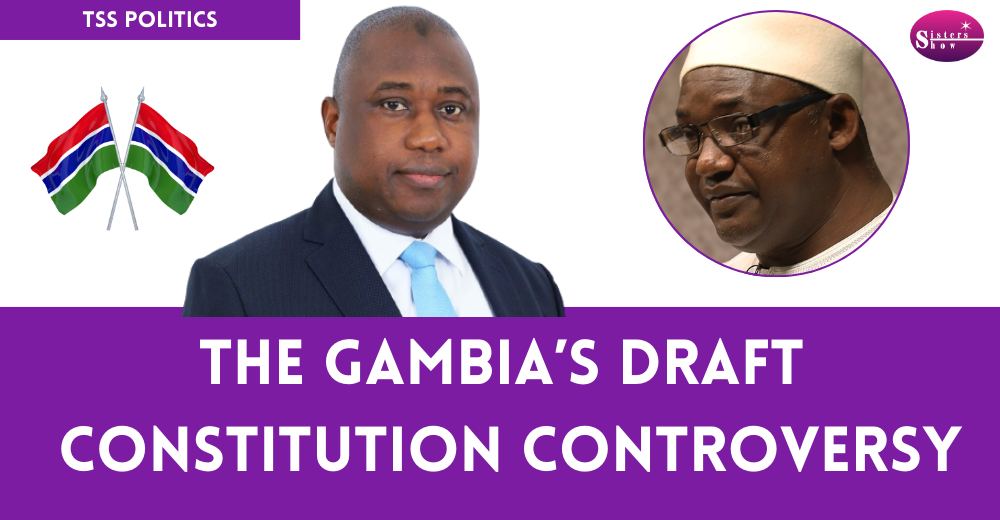
The Gambia’s Draft Constitution Controversy
The recent re-gazetting of The Gambia’s draft constitution has sparked intense debate and controversy across the nation. After years of anticipation and revision, the draft, which was initially introduced by the Constitutional Review Commission (CRC) in 2020, is now back on the table, but not without raising significant concerns.
A Constitution in Question: The Root of the Debate
The journey to a new constitution for The Gambia has been fraught with challenges. The 2020 draft constitution, which aimed to introduce critical reforms such as presidential term limits and enhanced accountability mechanisms, was seen by many as a necessary step to move beyond former President Yahya Jammeh’s authoritarian legacy. However, the draft faced rejection in the National Assembly, primarily due to its perceived limitations on executive power, which many lawmakers viewed as a threat to the sitting government’s authority.
The draft resurfaced in 2024, but it has not quelled the concerns that led to its initial failure. Key provisions, such as the term limit for the presidency and electoral reforms, remain contentious. Critics argue that the draft, in its current form, could pave the way for “self-perpetuating rule,” undermining the very democratic principles it seeks to uphold. Others have pointed out that essential elements promoting transparency and accountability have been diluted or removed, raising questions about the government’s commitment to genuine reform.
Public Reaction and Government Defense
The re-introduction of the draft constitution has reignited public debate, with many Gambians questioning whether this new version truly reflects the will and aspirations of the people. The Ministry of Justice has defended the draft, stating that it aligns with the national values and the ethos of a sovereign, democratic state. The government insists that the draft is a product of thorough deliberation and aims to strengthen the country’s democratic framework.
The Gambia’s Ministry of Justice has responded to the widespread criticism of the newly released draft constitution. Justice Minister Dawda Jallow has promised a detailed explanation of every item in the draft after concerns were raised about changes allegedly tailored to benefit a select few. The Ministry plans to address the public through a press conference and media appearances to clarify any misunderstandings and provide context. Critics argue the revisions stray from the original 2020 draft, which many Gambians preferred.
However, the controversy has not only been limited to the content of the draft. The process itself has come under scrutiny, with accusations that the government is manipulating the constitutional review process to secure its interests. This perception has been fueled by reports of amendments and removals that appear to protect the current administration’s hold on power rather than promote democratic governance.
What’s Next for The Gambia?
As the draft constitution heads towards another round of gazetting and potential legislative debate, the future of The Gambia’s democratic evolution hangs in the balance. Will this draft usher in the much-needed reforms that Gambians have longed for, or will it cement the status quo, leading to further political instability? The coming months will be crucial in determining whether The Gambia can achieve a consensus that balances the need for strong leadership with the principles of democracy and accountability.




